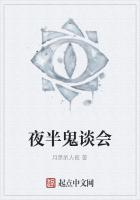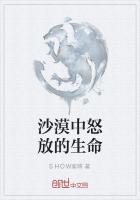Every morning brought the young heir of Earlescourt to the bright sunny gardens where Dora worked among the strawberries. As the days passed she began to lose something of her shy, startled manner, and laughed and talked to him as she would have done to her own brother. His vanity was gratified by the sweetest homage of all, the unconscious, unspoken love and admiration of the young girl. He liked to watch the blushes on her face, and the quivering of her lips when she caught the first sound of his coming footsteps. He liked to watch her dark eyes droop, and then to see them raised to his with a beautiful, startled light.
Insensibly his own heart became interested. At first he had merely thought of passing a pleasant hour; then he admired Dora, and tried to believe that reading to her was an act of pure benevolence; but, as the days passed on, something stronger and sweeter attracted him. He began to love her--and she was his first love.
Wonderful to say, these long tete-a-tetes had not attracted observation. No rumor of them escaped, so that no thorn appeared in this path of roses which led to the brink of a precipice.
It wanted three days until the time settled for the return of Lord and Lady Earle. Sir Harry Laurence, of Holtham Hall, asked Ronald to spend a day with him; and, having no valid excuse, he consented.
"I shall not see you tomorrow, Dora," he said. "I am going away for the day."
She looked at him with a startled face. One whole day without him! Then, with a sudden deadly pain, came the thought that these golden days must end; the time must come when she should see him no more. The pretty, dimpled face grew pale, and a dark shadow came into the clear eyes.
"Dora," cried Ronald, "why do you look so frightened? What is it?"
She gave him no answer, but turned away. He caught her hands in his own.
"Are you grieved that I am going away for one whole day?" he asked. But she looked so piteous and so startled that he waited for no reply. "I shall continue to see you," he resumed. "I could not let any day pass without that."
"And afterward," she said, simply, raising her eyes to his full of tears.
Then Ronald paused abruptly--he had never given one thought to the "afterward." Why, of course strawberries would not grow forever--it would not always be summer. Lord Earle would soon be back again, and then he must go abroad. Where would Dora be then? He did not like the thought--it perplexed him. Short as was the time he had known her, Dora had, in some mysterious way, grown to be a part of himself. He could not think of a day wherein he should not see her blushing, pretty face, and hear the music of her words. He was startled, and clasped her little hands more tightly within his own.
"You would not like to lose me, Dora?" he said, gently.
"No," she replied; and then tears fell from her dark eyes.
Poor Ronald! Had he been wise, he would have flown then; but he bent his head over her, and kissed the tears away. The pretty rounded cheek, so soft and child-like, he kissed again, and then clasped the slight girlish figure in his arms.
"Do not shed another tear, Dora," he whispered; "we will not lose each other. I love you, and you shall be my wife."
One minute before he spoke the idea had not even crossed his mind; it seemed to him afterward that another voice had spoken by his lips.
"Your wife!" she cried, looking at him in some alarm. "Ah, no!
You are very kind and good, but that could never be."
"Why not?" he asked.
"Because you are so far above me," replied the girl. "I and mine are servants and dependents of yours. We are not equal; I must learn to forget you," sobbed Dora, "and break my own heart!"
She could not have touched Ronald more deeply; in a moment he had poured forth a torrent of words that amazed her. Fraternity and equality, caste and folly, his mission and belief, his love and devotion, were all mingled in one torrent of eloquence that simply alarmed her.
"Never say that again, Dora," he continued, his fair, boyish face flushing. "You are the equal of a queen upon her throne; you are fair and true, sweet and good. What be a queen more than that?"
"A queen knows more," sighed Dora. "I know nothing in all the wide world."
"Then I will teach you," he said. "Ah, Dora, you know enough!
You have beautiful thoughts, and you clothe them in beautiful words. Do not turn from me; say you love me and will be my wife.
I love you, Dora--do not make me unhappy."
"I would not make you unhappy," she said, "for the whole world; if you wish me to love you--oh, you know I love you--if you wish me to go away and forget you, I will do my best."
But the very thought of it brought tears again. She looked so pretty, so bewildered between sorrow and joy, so dazzled by happiness, and yet so piteously uncertain, that Ronald was more charmed than ever.
"My darling Dora," he said, "you do love me. Your eyes speak, if your lips do not tell me. Will you be my wife? I can not live without you."
It was the prettiest picture in the world to see the color return to the sweet face. Ronald bent his head, and heard the sweet whisper.
"You shall never rue your trust, Dora," he said, proudly; but she interrupted him.
"What will Lord Earle say?" she asked; and again Ronald was startled by that question.
"My father can say nothing," he replied. "I am old enough to please myself, and this is a free country. I shall introduce you to him, Dora, and tell him you have promised to be my wife. No more tears, love. There is nothing but happiness before us."















